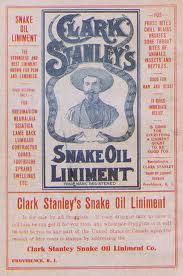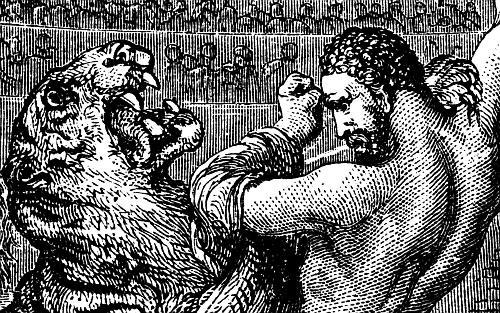Hard Work IS the Shortcut
 Saturday, October 15, 2011 at 03:40PM
Saturday, October 15, 2011 at 03:40PM  CAtennis
CAtennis 

CAtennis is a passionate discussion for serious tennis players, parents and coaches looking for something different. No talk about technique, no talk about useless theory, no gimmicks; just practical advice from first-hand experience on how to improve your tennis. Kick back, drink the content, bounce ideas, and pitch articles (or friend us on Facebook).
Unless otherwise noted, all articles are authored by the founders of CAtennis. Enjoy!
 Saturday, October 15, 2011 at 03:40PM
Saturday, October 15, 2011 at 03:40PM  CAtennis
CAtennis 

 Saturday, October 15, 2011 at 02:41PM
Saturday, October 15, 2011 at 02:41PM  CAtennis
CAtennis  Saturday, October 15, 2011 at 01:59PM
Saturday, October 15, 2011 at 01:59PM  CAtennis
CAtennis Tennis is an endless search for the Fountain of Youth. Ponce de Leon learned the hard way, venturing to Florida to only fail in finding the ever so famous Fountain of Youth. As like Ponce de Leon, venturing to Florida to the world reknowned tennis coaches such as Nick Bollitieri or Rick Macci will not boost your tennis game overnight. If it were that easy, I would recommend locking in a time slot with Nick himself at $800 a pop.
The reality is tennis is a very tough game. There are no magic pills, secret elixirs, or specific technical tips that will instantly make something click in your head. One has never heard of a story who from a one hour lesson went on from nobody to somebody in a matter of weeks. Tennis takes time, patience, and an endless amount of trial and error. The best players are able to grapple with this fact sooner than later, accept their flaws and work within the boundaries placed before them. Sure, you will always attempt to improve different aspects of your game, but when it comes time for the match of your life with money and pride on the line- you must do only things that will increase your chances of winning.
Many parents and players have been guilty of cherry picking. If you ever have gone cherry picking on a farm, your #1 goal is to find the plumpest, juiciest, reddest, most vibrant cherries on the stem. By golly, when you see it, snag it. Well in terms of searching for coaches, parents and players do the exact same thing. They see someone is having a little success with one coach or they think they are in a rut, the easy solution is to jump ship and cherry pick a juicier coach. I'm not suggesting one coach isn't better than another, but when one starts to seek a multitude of coaches on a frequent basis to solve their issues, one is not going to have the success he or she wants.
The first problem is very few parents and players are willing to accept blame and responsibility. With very little sense of loyalty in the world today, most are looking for the easy way out. There will always be someone around the corner or at a tournament chirping the "grass in greener on the otherside" tidbit. Those people are usually frauds, beware of them. The good players who have some class, character, and substance don't look for the easy way out. They refuse to cherry pick and try to work out the issue themselves.
If you talk to good to great players who grew up before the 1990s, most played tennis because they had the "bug" for it. They played because their parents played. They played because their friends played. In today's society, parents are driving the kids to lessons. If the kid has poor results, lets find a new coach who can motivate the kid better. The parents are always ready to catch the kids when they fall. The coping skills needed to become a good player are not being developed as the parents are doing them a great disservice in finding them solutions to their problems.
The ideal way to start and develop as a player is to limit your private lessons to one per week. One per week is plenty. Why? The player needs time to digest the information. The player needs time to work out the kinks whether be a new technique, strategy, or shot. The player needs to spend hours on his own honing his skills through a series of trial and errors experiments, learning how to make adjustments on the fly without being told how to adjust. The player might make a discovery on his own and stumble upon something amazing for his/her game. Lastly, the player needs to test his lesson under matchplay pressure. Play a couple sets before the next lesson and see what needs work. A week later, the player now has some good information to relay back to the coach. Do not overcoach the kid. Let the player learn to adjust and adapt with no one else looking over their shoulder. The best players have ultimately learned to become their own coach.
 Saturday, October 15, 2011 at 04:15AM
Saturday, October 15, 2011 at 04:15AM  CAtennis
CAtennis Many times we, as coaches, are approached by eager parents who would like us to fine-tune their kids' games immediately before the tournament ("hey, ________ has a match on Saturday so is it OK if you could give him a good hit on Friday").
My personal theory is that matches are won or lost well in advance of the tournament (CHAMPIONS ARE CREATED ON THE BACK-COURT NOT CENTER COURT). It's how you approach your practices 2-3 months prior to the tournament that has a greater bearing on your results. Sometimes, a "good" practice can in fact be counterproductive because the player is overloaded with new information that s/he has not been able to process, synthesize, implement and refine. Consequently, there is a chance that the player enters the tournament with too many thoughts in his/her mind. This is the fallacy of fine-tuning in that it's difficult to fine-tune something that hasn't been "tuned" in the first place. Second, a great deal of players have the tendency to play better in a tournament when their immediately preceding practices have not been the "best". These players use these bad practices as ways to motivate themselves for the match. In other words, they don't take their Saturday morning match for granted because they know how easy it is to be thrown off their game by the opponent. Such players go out there and actually concentrate better during the match and compete hard for every point.
As a result, it is more important for players to set up their practices in such a way that they peak for the main event. An effective process would be to have consistency/stamina-focused practices well in advance of the tournament (T[ournament]-minus 2-3 months) and the add more power and precision-based practices as the player gets closer to the main tournament. Smaller tournaments during this period should be used as testing grounds for what the player practices. For example, if the player is working on his backhand, he should try to play some tournaments where he focuses on working his backhand around the court. Maybe go for no winners with his forehand and try to get as much practice hitting backhands as possible.
Then, as the player gets closer to the main tournament, practices should alternate between consistency, power and precision so that the player is comfortable executing the same on a day-in day-out basis. The last few weeks before the tournament (T minus 2-3 weeks), every practice should contain a consistency, power and precision component. Only after mastering the foundation and fundamentals can the player be assured that some last-minute fine-tuning will have any effect. However, the good results come from the player's knowledge that she's given it her best during the foundational practice stages.
 Friday, October 14, 2011 at 11:01PM
Friday, October 14, 2011 at 11:01PM  CAtennis
CAtennis We often hear parents or coaches tell their students or children to "just go out there and gave fun". Unfortunately, most players and coaches do not practice with this same goal in mind. Often times the too parties spend an inordinate amount of time developing the "meat and potatoes" of the game (forehand, backhand, some serves and volleys) while completely ignoring the rest of the game. Just like a mechanic has hundreds of tools in his box, a tennis player needs to be proficient at shots even though s/he may only be required to hit them a few times during the match.
For example, slices are not just great for defending, but they also work for neutralizing the opponent's weapons, for moving the ball around while not giving the opponent too much time (due to trajectory of the ball), for changing up the spins that you impart on the ball, as well as for breaking down the opponent's legs (by having her bend her knees repeatedly). In addition, swinging volleys are great for taking "moon balls" out of the air and not allowing the opponent to recover from a defensive position. Drop shots work wonderfully against players who spend a great deal of time close to the back fence. Top spin lobs, jump shots, sky-hook overheads, "lefty" forehands, mid-court chips, backhand overheads, "pick-ups" or half-volleys, between the legs, behind the back, etc. are all shots that a player should learn as you never know when you will be called upon to execute such shots at a critical point. Furthermore, executing these shots will give the player "true confidence"; the knowledge that s/he can handle whatever the opponent throws his/her way and that s/he can create openings with all of her tools.
Now, we're not advocating utilizing these shots exclusively; far from it. The whole point of practicing them is to understand not just HOW to hit them but also WHEN to hit them (and when not to do so). For example, a player who has executed 1000 drop shots in practice and has been successful at hitting 200 targets is less likely to hit them at an inopportune time (because s/he understands the risks and his/her limitations). But, again, it is important for the player to have all these pieces in his/her arsenal in order for the player to be able to truly "have fun." There's only so much fun that a player can have while hitting 10,000 forehands in a match. Lastly, a varied practice is more likely to be exciting for the player - keeping him/her coming back and asking for more - and result in LESS burn-out. So go out there are work on everything and use the tennis court as your canvas for producing great art.